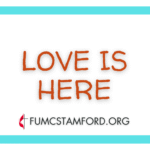
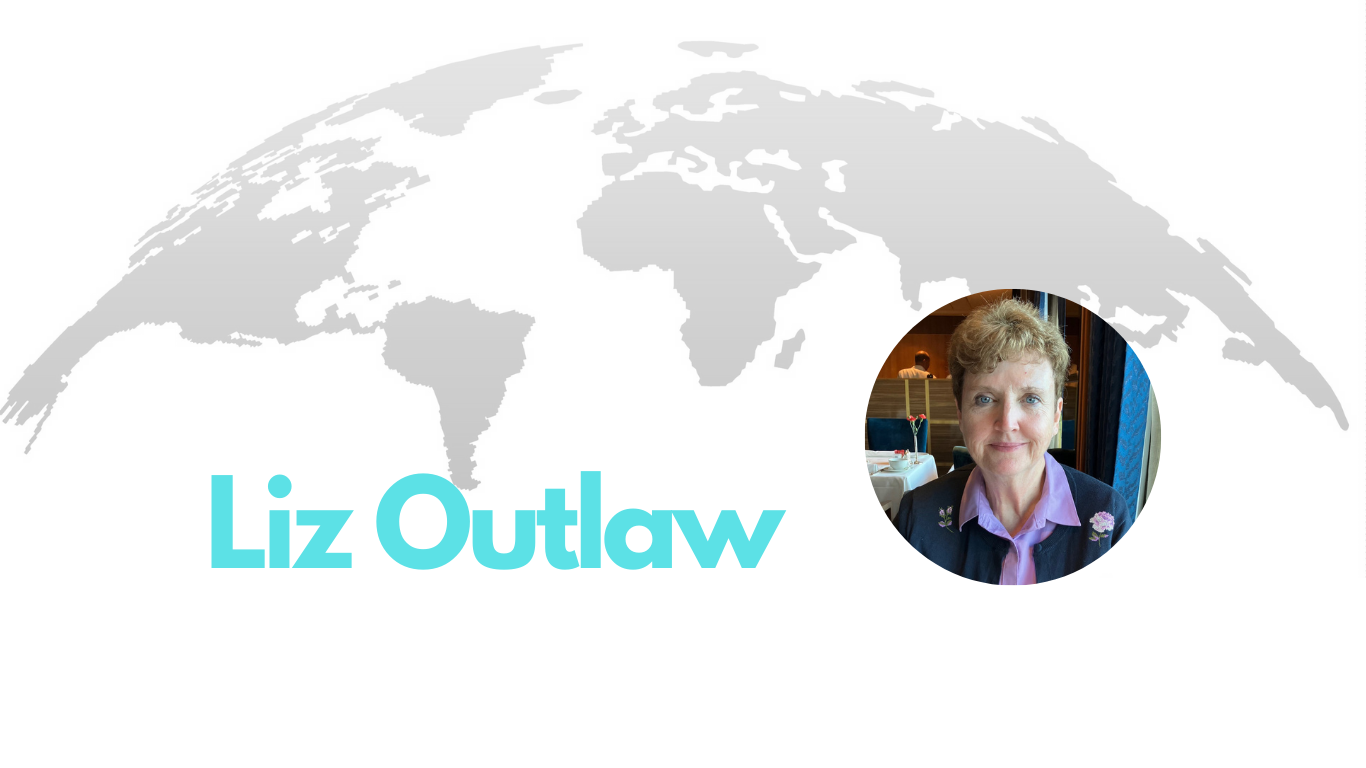
Meet Liz Outlaw, a dedicated leader at First UMC with a rich history of involvement in the church. From her roots in a small Pennsylvania town to her current role as the lay leader, Liz has had a lifelong commitment to service and faith. In our recent conversation, she shared her experiences growing up in a Methodist church, her leadership journey, and her ongoing dedication to the community through roles like chairing Missions & Outreach and participating in the Covenant Discipleship Group. Liz’s insights reflect a deep love for God, people, and the power of unity in diverse communities.
I grew up in Pennsylvania in a small town called Kingston. I was in a Methodist church there. Church was a big part of my life. I was baptized, confirmed, and married in the same church. And the church was, you know, the center of my socialization.
I attended Girl Scouts there and started choir practice when I was six. I was part of the youth group, which became an important part of my life alongside school. It was a good place.
It was very residential. We lived in the coal mining part of Pennsylvania. Both sides of my family were involved in coal mining. Although my father was not involved, my mother was a secretary for one of the coal companies. Kingston was not a coal mining town, but my mother grew up in one about 12 miles away. That was a company town.
The coal company owned their houses, and the grocery store was owned by the local coal company as well. If you went to the grocery store, the groceries you bought were taken out of your paycheck. Your rent was taken out of your paycheck. It was a very strange arrangement. My mother grew up that way. When the company hired someone, they gave them a place to live. The only houses in town were the houses that the coal company had built.
My father had a blue-collar job at a newspaper. He worked in the composing room. By the early 60s, there was no coal mining in that part of Pennsylvania because the mines were tapped out.
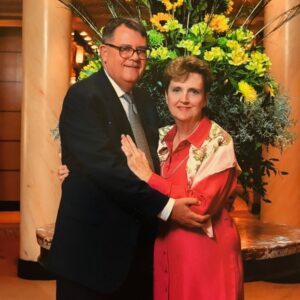 I was born in 1956, so most of my growing up was in the 60s. I went to college at The University of Pennsylvania in 1974 where I studied nursing. I met my husband there during my freshman year. He was in the Wharton School. In my senior year, he went off to the University of Chicago for his MBA and I still had a year of college left. Then, I went to work for Jefferson Medical Center in Philadelphia. We married after he got his MBA and moved to New York City. From age 23 to 28, we lived in Manhattan. We were there from 79’ to 84’ then moved to Connecticut.
I was born in 1956, so most of my growing up was in the 60s. I went to college at The University of Pennsylvania in 1974 where I studied nursing. I met my husband there during my freshman year. He was in the Wharton School. In my senior year, he went off to the University of Chicago for his MBA and I still had a year of college left. Then, I went to work for Jefferson Medical Center in Philadelphia. We married after he got his MBA and moved to New York City. From age 23 to 28, we lived in Manhattan. We were there from 79’ to 84’ then moved to Connecticut.
My father died unexpectedly in 1994. My sister passed away at 62 in 2017 from uterine cancer. She was my only sibling so when she died I moved my widowed mother to CT. I soon became aware that I could no longer do for my mother what my sister and I had done together. That’s when she moved to Sunrise Assisted Living. My mother passed in 2020 but lived at Sunrise for three years and it was a perfect place for her. She thrived there and she was safe and they had a lot of activities. She made new friends and she was well-fed and well cared for. I went there every morning and helped her get ready for the day. She attended our worship services every Sunday. Church members were very kind to her.
I was extremely pleased with Sunrise. I hope they have maintained that level of service.
Ruth Taranto’s mother, also now passed, was also at Sunrise and Pat Bissett’s parents. That’s how I found out about it. It’s always good to get a recommendation. That’s where those personal connections are super valuable. Especially church connections!
Nothing comes close to the fact that in 1972 when I was 16, we went through a major flood, Hurricane Agnes. Our house had 18 feet of water in it and basically, our entire valley was inundated. That summer into the fall and winter I helped my parents renovate our house.
There was no flood insurance then. The federal flood insurance program was actually started in January of 1973 as a result of that flood. So, there was no flood insurance, and my parents still had a mortgage on their house.
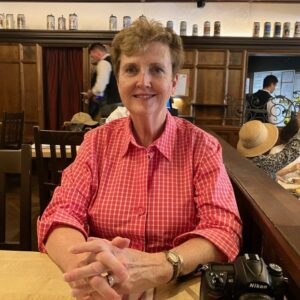 My parents had to take out a second mortgage to renovate. We were in Pennsylvania at the time. The Susquehanna River Valley from Alfred New York all the way down to the Chesapeake Bay was completely flooded. It was life-changing.
My parents had to take out a second mortgage to renovate. We were in Pennsylvania at the time. The Susquehanna River Valley from Alfred New York all the way down to the Chesapeake Bay was completely flooded. It was life-changing.
I was in 11th grade, and we had double school sessions because one of our high schools was destroyed in the flood. The juniors and seniors went to school from 7 am to 12:30 pm and the freshmen and sophomores had to go from 12:30 to 6 pm. In the winter it’s dark at 4:30 pm so it was a grim time to be in school.
It took 10 months for my parents to complete renovations on our house, and we lived in it before it was completely habitable. After that, everything was referenced based on the flood: before the flood and after the flood. That’s how people described things. It was a line of demarcation in our lives.
I think it did. People helped each other enormously. I mean you had to. Our church was devastated. I remember going to church with my father to see how it was in the immediate days afterward. There was a fish on the carpet in the sanctuary that had floated in. The organ had been destroyed, the pews were destroyed. It was overwhelming because everyone you knew and everywhere you went was destroyed by this flood. There are some things you have no control over, that’s for sure.
Sometimes, Randall and I talk about this. You know, we were both bright people in high school and you go to a place like Penn and everyone is as smart or smarter than you. And you think…holy mackerel! The workload is tremendous. Every professor expects you to read the entire textbook plus the recommended readings. The people in your class are brainiacs to your left and brainiacs to your right and you know you have to step it up.
I was born into it. Church has always been a part of our lives. I always accepted Jesus as my Lord and Savior, but it was practically from birth. My sister and I were really steeped in the Bible at an early age. A lot of our friends were from the church, and it was just the way of life.
We went to church every Sunday morning for worship and Sunday School; we had church services on Sunday evenings, too. During the week we attended Good News Club which was like another Sunday School and held after school on Mondays.
Attending worship has always been a vital thing in my life. Sunday worship has always been an anchor in my week.
Also, since 1998, I’ve been part of a Covenant Discipleship Group at our church, a group which Peggy Halleck was a founding member of. Peggy has passed and other members have moved away so now Cynthia Williams, Gail Hanny, and I meet every week by phone. We have a covenant which we read every week to help maintain our Christian values. We commit to using prayer, meditation, and singing throughout the week to act out our faith. There’s confidentiality in the group. We feel free to bring anything there, anything going on in our lives we share with our Covenant sisters.
The Covenant Discipleship Groups were started with Dennis Winkleblack. He came to the church in 1990, and he was there until 1997. He preceded Doug McArthur. At the height, there were 12 different groups. I think there’s a real place for it. It’s a wonderful thing for your faith, a wonderful anchor to help you grow. Peggy Halleck used to say, “Well, here’s a piece of our covenant that I used this week.” Peggy added a line to our covenant, which I referred to in the tribute at her memorial service. She would say, “Attitude is everything.” And that takes practice, right? It’s not just something that comes naturally.
Many people have brought up that we need small groups. John Wesley used to say that the heart of the church is small groups. I think there are people interested in that. It’s probably around the corner because people are expressing they need that. I hope we do develop more small group meetings, like Covenant Discipleship Groups.
Currently, I’m the lay leader, which is a bridge between the pastor and the congregation. I’m also in the handbell choir and I am part of this Covenant Discipleship Group.
I chaired Missions & Outreach for more than 10 years. I was the president of United Methodist Women when the group was active. Jackie Simmons, Twanda Bowers and I are church representatives on the nursery school board. We act as liaisons between the church and the nursing school. I’ve worn a lot of caps.
That is a great question. I guess I have been a leader for a lot of my life. Starting probably in high school. In college, I had leadership jobs. It feels comfortable to me. I was a head nurse at Sloan-Kettering at one point, then I was an assistant director. So it’s been part of my professional life too. I like to come together with people. I like to listen to them, hear what they have to offer, and see where we can go with their ideas.
My first leadership role was a study in gender discrimination. I was a school safety patrol. We went home for lunch in our elementary school. Fifth graders, and sixth graders could be crossing guards or “safety patrols.” We would stand at each street corner and cross the children safely across the road.
In sixth grade there was a vote of all the safety patrols. Whoever got the most votes would be captain for that year and whoever got the next greatest number would be lieutenant. I got the most votes and the teachers who were the advisors said to me, ”Of course, you understand that you can’t be captain because you’re a girl.” I didn’t understand it then. I still don’t understand it.
They gave it to a boy who got the second-highest number of votes. I was doing all the right things yet I had to be the lieutenant, but I ought to have been the captain. That was my first leadership role in school. Later on, I was the treasurer and the project coordinator of the student council. These early experiences are so important.
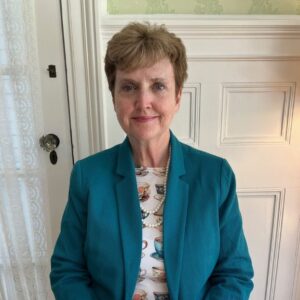 I learned a tremendous amount from Reverend Doug McArthur about diversity. I wish more people could learn what he taught me. We have a diverse congregation of ages and races. But you know what? Doug McArthur taught me to think of people as people. Everyone is a person and a beloved child of God although they happen to be a different age than me or have a different socioeconomic class or a different skin color. It really doesn’t matter to me because each person is a person and that’s how I look at everyone.
I learned a tremendous amount from Reverend Doug McArthur about diversity. I wish more people could learn what he taught me. We have a diverse congregation of ages and races. But you know what? Doug McArthur taught me to think of people as people. Everyone is a person and a beloved child of God although they happen to be a different age than me or have a different socioeconomic class or a different skin color. It really doesn’t matter to me because each person is a person and that’s how I look at everyone.
I think it’s lovely that our church is racially diverse. Martin Luther King said that at 11 o’clock on Sunday mornings America is the most segregated place in the world because people go to their own churches based on race and they tend to be racially demarcated. Ours is not. I think that’s wonderful. You shouldn’t put people in boxes.
I’m very upset about what’s going on in our country. I feel like we’re heading down a big, dark hole in our country. But one of the things I want to say to people is, do you know what’s another word for illegal immigrants? People. They’re people, and what would Jesus do? Jesus would not be dividing us the way our country is being divided. It’s being divided along economic lines. They’re talking about Donald Trump’s cabinet as being the wealthiest cabinet in the history of the country. This is not representative of the country. There is racism and there’s nonsense going on in our country. It is a reason to pray every day.
I pray for Donald Trump because he is a person. He is a beloved child of God, but also because I want him to succeed and do the right things.
I think I handle it fairly straightforwardly. I’m not afraid of conflict. I think that flows from the fact that I am a pretty good listener. I listen to people and their concerns and try to find common ground.
When we retreat to our various corners we create conflict. I don’t think we have to be like that. I think if we care for each other and look at each other as different valuable people then we can get somewhere together.
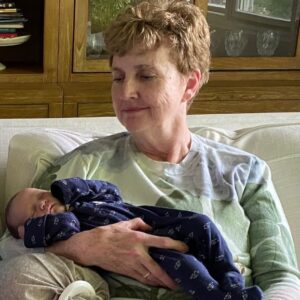 We started the Covenant to Care for Children, the Adopt a Social Worker program when I chaired Missions & Outreach years ago. I think every house of worship could do this because there are strengths in a community of faith that can be applied to children who are in foster care. We have resources we can share with children in need. When you have that wonderful bridge between the church and the social worker, we can help a lot of kids.
We started the Covenant to Care for Children, the Adopt a Social Worker program when I chaired Missions & Outreach years ago. I think every house of worship could do this because there are strengths in a community of faith that can be applied to children who are in foster care. We have resources we can share with children in need. When you have that wonderful bridge between the church and the social worker, we can help a lot of kids.
I was a lay leader for a part of when a previous pastor was here, and I would occasionally have to speak to him very directly in his office and say, “This can’t happen again.” Sometimes he spoke from the pulpit about people’s confidential situations. You never ever do that. I told him this can’t happen again with any person. I was direct and it was draining in the extreme but I felt it was vitally important to speak up.
I think there’s growth which is very encouraging. I think Pastor David is extremely intentional about following up with people who are new. No one is slipping through the net. That’s vital. There are people attending more frequently and coming back. I think that’s a very hopeful thing.
Currently, my service outside of the church is mostly through the New Covenant Center which is Stamford’s soup kitchen. I’m part of the casserole team that provides lunch once a month. In addition, First UMC serves dinner there every Thursday evening. The Missions & Outreach Committee wants to step that up to twice a week. That’s very good engagement with the community of Stamford. I think we need more opportunities for people to serve outside of the church.
Most recently, I’ve read “Counterfeit Gods: The Empty Promises of Money, Sex, and Power and the Only Hope That Matters” by Tim Keller. Tim Keller has written a lot of books and a series on the books of the bible including Corinthians, Romans and Galatians. The young adults might be interested in his books for their Bible study.
One of the Bible studies we did was called “The Reason for God” and it came with a DVD set. It was fascinating because he engaged only people who were agnostic. It was so interesting to hear them. He was totally respectful of them and their beliefs or non-beliefs. It was a fascinating read and to hear these interviews.
I would put Peggy Halleck on that list. Just a tremendous Christian who started every day with: “This is the last day the Lord has made. Let us rejoice and be glad in it.” In the bigger picture, Florence Nightingale is a hero of mine who did a lot for the profession of nursing. Christian-wise, John Wesley and Martin Luther King Jr. are heroes.
Before I did this today, I thought I wanted to say that I happen to think our church is a great place. I think it is an oasis in a weary world. It is a sanctuary, literally and figuratively. I come here a little weary of the world and I leave uplifted.
When I moved from Manhattan to Connecticut, I didn’t know anybody. The first people that I became friends with were here at church. I have a few friends who are outside of the church but most of my friends are a part of our church. I feel so grateful to be a part of this community of faith.
It’s like John Wesley said, “Do all the good you can in all the ways you can to all the people you can as long as ever you can.” I feel like every day, every one of us needs to do all the good we can, in little ways and bigger ways. And it gets easier the more you do good. I feel like the practice of religion is a muscle, you have to keep working at it. It’s a practice. I think we forget that sometimes. The habit of churchgoing can be embedded in your spiritually. Being a part of a group of faithful people strengthens our whole culture.

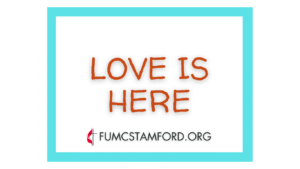
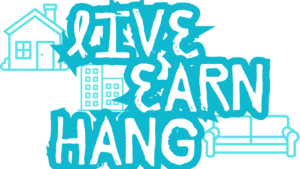
Copyright © 2023, FUMC. All Rights Reserved.
Developed and Designed by New Revenue Consulting LLC.